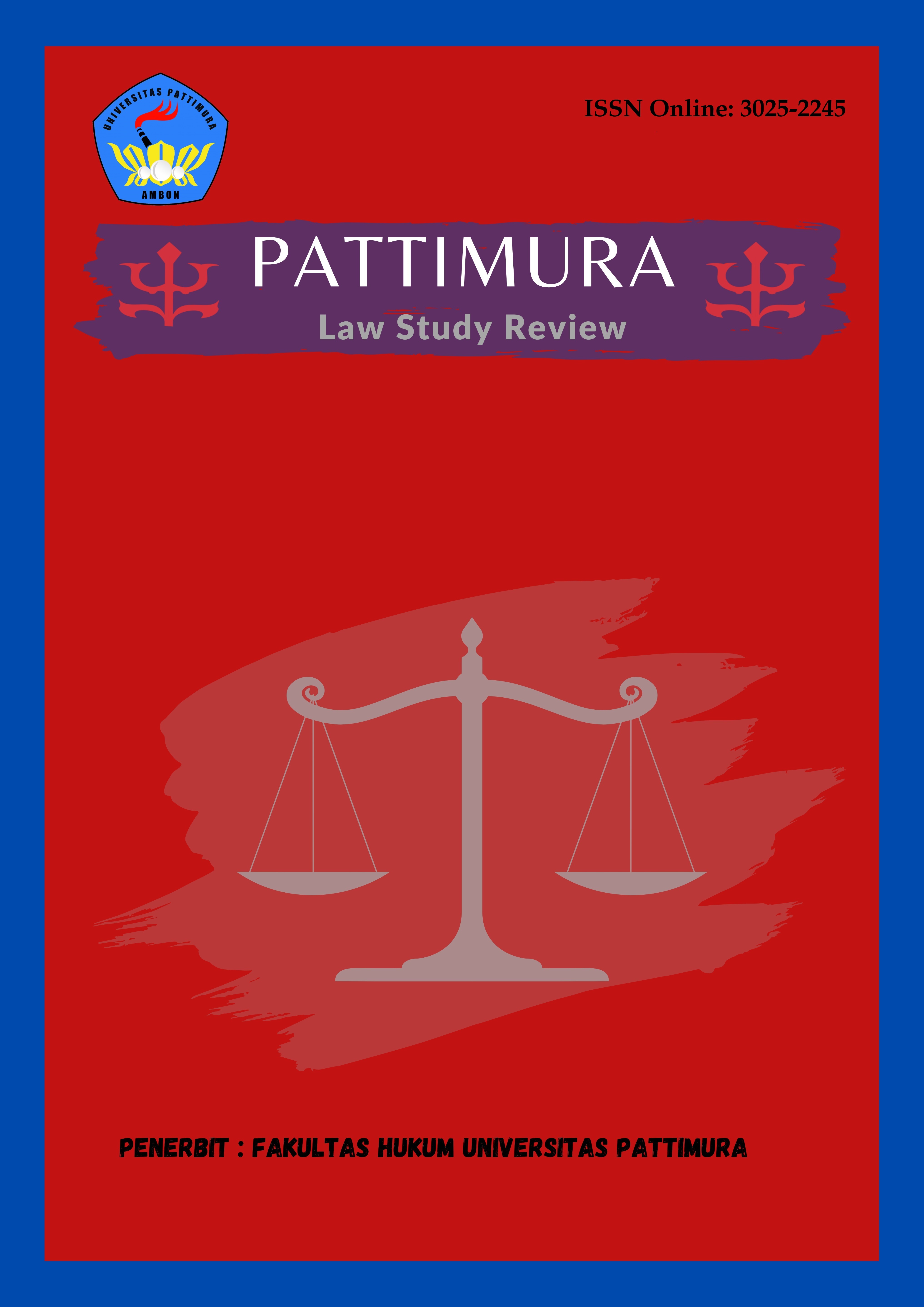Peran Hukum Adat Dalam Penyelesaian Sengketa Masyarakat Lokal
Abstract
Customary law plays a significant role in Indonesian society as a dispute resolution mechanism that emphasizes the values of togetherness, kinship, and communal justice. Amid the challenges of modernization and agrarian conflicts, local communities tend to favor customary law over formal state law due to its greater social and cultural relevance. This study aims to analyze the role of customary law in resolving disputes within local communities by highlighting deliberation, mediation, and negotiation as the primary mechanisms. A qualitative approach was employed, based on literature review and case analysis of indigenous communities such as the Batak and Minangkabau. The findings show that customary law ensures peaceful and sustainable conflict resolution because it is rooted in local values such as mutual cooperation, sacrifice, and spirituality. Customary leaders play a key role as mediators, maintaining community stability and harmony. Despite the dominance of formal law, customary law remains relevant and adaptable in meeting community needs. This study underscores the importance of recognizing and integrating customary law into the national legal system to develop a more inclusive, contextual, and socially just approach to dispute resolution.
Downloads
References
Adila, A., & Alexandra, S. (2025). Implementation of Customary Law in Land Dispute Resolution in Indigenous Law Communities. Hakim: Jurnal Ilmu Hukum Dan Sosial, 3(1), 993–1012.
Doe, J. (2023). Restorative Justice in Customary Law: Alternative Dispute Resolution in Indigenous Communities. Indigenous Law Review, 12(1), 45–62. https://doi.org/10.1234/ilr.v12i1.456
Hasan, M. A., Mokalu, B., & Lumintang, J. (2022). Peran Tokoh Adat Dalam Melestarikan Nilai Budaya Pekande-Kandea Di Kelurahan Tolandona Kecamatan Sangia Wambulu Kabupaten Buton Tengah. Jurnal Ilmiah Society, 2(1).
Hilman, H. (1992). Pengantar Ilmu Hukum Adat Indonesia. Mandar Maju, Bandung.
Judijanto, L., Utama, A. S., Sahib, A., Sumarna, M. I., & Zulfikar, M. R. (2024). Comparative Analysis of The Use of Customary Law in Land Dispute Resolution: Case Study Approach. Rechtsnormen Journal of Law, 2(2), 112–120.
Marham, U., & Razak, A. (2023). The Constitutionality of Customary Courts in Dispute Resolution for Indigenous Communities in Tana Toraja Regency. Al-Ishlah: Jurnal Ilmiah Hukum, 26(1), 48–63.
Muhammad, B. (1981). Pokok-Pokok Hukum Adat.
Nurtresna, R., Sopiyati, S., Arifin, O. C. M., Faiq, F., Hidayah, A. N., Sepriyanti, R., Guntur, A., & Nadia, T. (2024). Penerapan Dan Relevansi Hukum Adat dalam Konteks Modern. Eksekusi: Jurnal Ilmu Hukum dan Administrasi Negara, 2(3), 470–478.
Pratiwi, B., Soeparan, P. F., & Wibisono, W. (2024). Peran Hukum Adat dalam Penyelesaian Sengketa Agraria di Indonesia: Kajian Empiris dengan Metode Komparatif. Hakim: Jurnal Ilmu Hukum dan Sosial, 2(4), 807–822.
Rahmat, D., NU, S. B., & Reviando, Y. (2024). Problems and Resolutions of Traditional Land Disputes in the Minangkabau Region. Journal of Law and Economics, 3(2), 64–70.
Resmini, W., & Sakban, A. (2018). Mediasi dalam Penyelesaian Sengketa pada Masyarakat Hukum Adat. CIVICUS: Pendidikan-Penelitian-Pengabdian Pendidikan Pancasila Dan Kewarganegaraan, 6(1), 8–13.
Safa’at, R., & Qurbani, I. D. (2017). Alternatif Penyelesaian Sengketa Pertambangan (Studi di Kabupaten Lumajang Provinsi Jawa Timur). Jurnal Konstitusi, 14(1), 150–167.
Shidiq, R. A., & Pulungan, M. S. (2025). Alternative Dispute Resolution for Customary Land Through Customary Courts. Asian Journal of Engineering, Social and Health, 4(1), 152–162.
Taroreh, E., Husain, F., & Ananda Wenur, Z. C. (2024). Peran Hukum Adat dalam Penyelesaian Persoalan Adat di Desa Didiri Kecamatan Pamona Timur. Jurnal Ilmu Hukum, Humaniora Dan Politik (JIHHP), 4(5).
Copyright (c) 2025 Abd Raid Sopalatu, Rizki Ananda Agust Lailita, A Sudja’i (Author)

This work is licensed under a Creative Commons Attribution-NonCommercial 4.0 International License.
Authors who publish their manuscripts in this Journal agree to the following conditions:
- The copyright in each article belongs to the author, as well as the right to patent.
- Authors are able to enter into separate, additional contractual arrangements for the non-exclusive distribution of the journal's published version of the work (e.g., post it to an institutional repository or publish it in a book), with an acknowledgment of its initial publication in this journal.
- Authors are permitted and encouraged to post their work online (e.g., in institutional repositories or on their website) prior to and during the submission process, as it can lead to productive exchanges, as well as earlier and greater citation of published work.
- Authors have the right to self-archiving of the article (Author Self-Archiving Policy)













